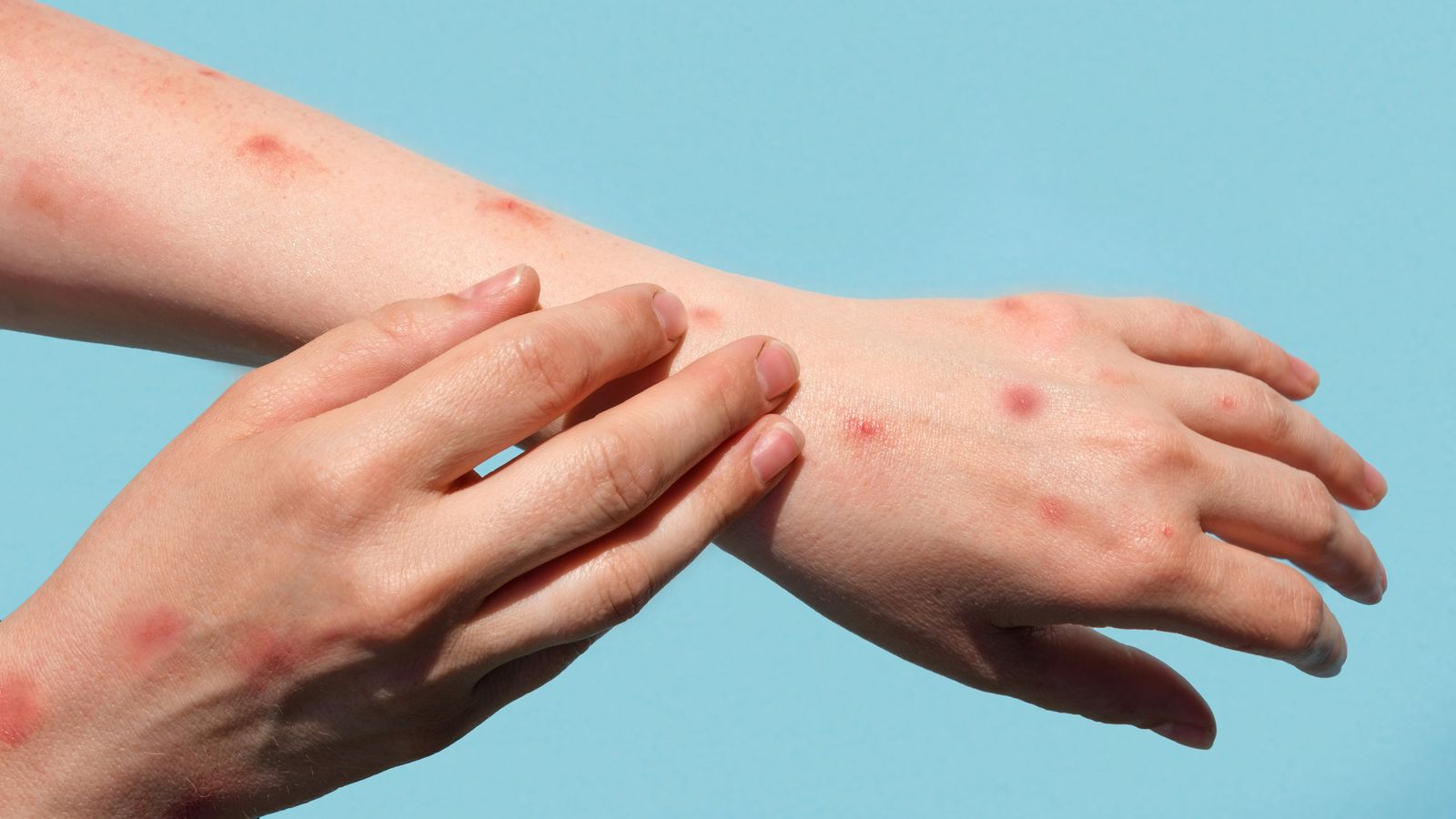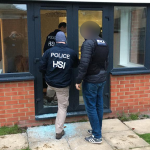Monkeypox transmission can happen up to four days before any symptoms appear, scientists have discovered.
The spread of the disease before symptoms arise may be much more “substantial” than previously thought, said researchers at the UK Health Security Agency (UKHSA).
In the first evidence of its kind, the study estimated more than half (53%) of transmission occurs in the pre-symptomatic phase, meaning many infections cannot be prevented by asking people to isolate if they detect symptoms.
It also suggests that even when contacts are traced they may have already passed the virus on to others.
People would need to isolate for 16 to 23 days to detect 95% of those with a potential infection, the study concluded.
Researchers looked at the time it took from when first symptoms occurred in the first patient to when symptoms developed in a second patient, and also looked at the incubation period – the time from exposure to the virus to the onset of symptoms.
The findings showed four days was the maximum time that transmission was detected before symptoms appeared.
UK launches new research hub to tackle monkeypox
Monkeypox: Leading sexual health charity says it can no longer support government’s ‘lacklustre’ communications strategy
Treating Monkeypox is leading to STI outbreaks, say sexual health professionals
Monkeypox symptoms vary but include rash, fever, chills, swollen lymph nodes, exhaustion and headache.
The latest UKHSA figures show that as of 24 October there have been 3,548 confirmed and 150 “highly probable” monkeypox cases detected in the UK.
Read more:
Monkeypox: How do you catch it, what are the symptoms, and how easily does it spread?
Infections peaked at more than 60 a day in mid-July, but have since been falling with fewer than 15 cases a day on average in early September.
The study included 2,746 people who tested positive for monkeypox in the UK between 6 May and 1 August.
They were aged 37.8 years old on average and 95% reported being men who have sex with men.
Please use Chrome browser for a more accessible video player
‘It remains vital that people are alert to the risk’
Dr Nachi Arunachalam, monkeypox incident director at the UKHSA, said: “This modelling suggests there may be some transmission of monkeypox when people are pre-symptomatic or before they recognise they have symptoms, but there is still more work needed to understand pre-symptomatic and asymptomatic infections and what that might mean for future policies and management of the monkeypox outbreak.
“Whilst we continue to see fewer cases reported in the UK, it remains vital people are alert to the risk monkeypox poses and take action to protect themselves and others.
“Vaccination plays a crucial role in this so I would encourage those at highest risk to come forward and get your first dose.”
45,000 vaccinated
In September, the UKHSA announced second doses of the smallpox vaccine were being offered to those people at highest risk from monkeypox.
More than 45,000 have received a dose of the vaccine, including more than 40,000 men who have sex with men. These groups have the highest risk of exposure to monkeypox.
The study was published in the British Medical Journal (BMJ).






















